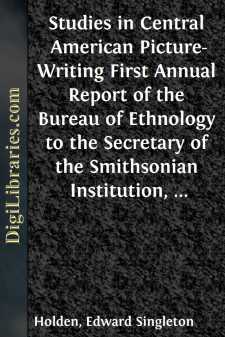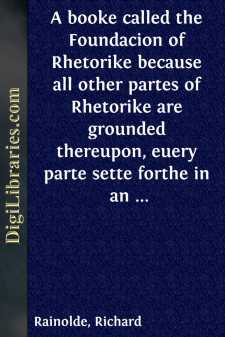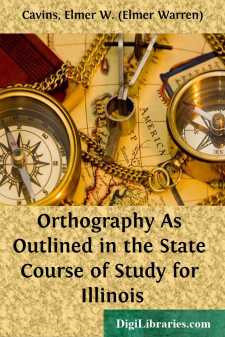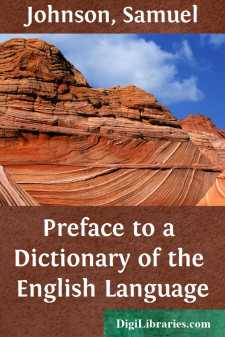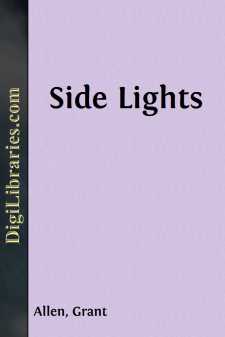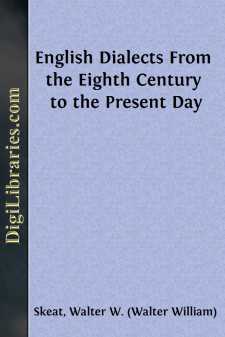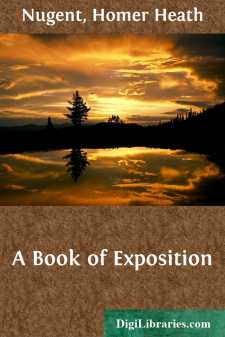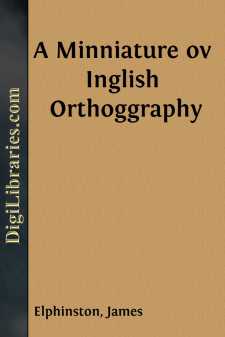Language Arts & Disciplines
Language Arts & Disciplines Books
Sort by:
Since 1876 I have been familiar with the works of Mr. John L. Stephens on the antiquities of Yucatan, and from time to time I have read works on kindred subjects with ever increasing interest and curiosity in regard to the meaning of the hieroglyphic inscriptions on the stones and tablets of Copan, Palenque, and other ruins of Central America. In August, 1880, I determined to see how far the principles...
more...
by:
Richard Rainolde
To the Reader. PHTHONIVS a famous man, wrotein Greke of soche declamacions, to en-structe the studentes thereof, with all fa-cilitée to grounde in them, a moste plenti-ous and riche vein of eloquence. No manis able to inuente a more profitable waieand order, to instructe any one in the ex-quisite and absolute perfeccion, of wisedome and eloquence,then Aphthonius Quintilianus and Hermogenes. Tullie...
more...
INTRODUCTIONBY DR. EDWIN C. HEWETT. I have long thought that the careful, discriminating study of words is much neglected in our schools. And I am glad to approve, and help to forward, anything that will promote such a study. Not only will such a study improve a person's language greatly, but it will, at the same time, do much to improve the clearness and precision of his thinking; thought and...
more...
by:
Samuel Johnson
It is the fate of those who toil at the lower employments of life, to be rather driven by the fear of evil, than attracted by the prospect of good; to be exposed to censure, without hope of praise; to be disgraced by miscarriage, or punished for neglect, where success would have been without applause, and diligence without reward. Among these unhappy mortals is the writer of dictionaries; whom mankind...
more...
by:
Grant Allen
I. LETTER-WRITERS. Since old Leisure died, we have come to think ourselves altogether too fine and too busy to cultivate the delightful art of correspondence. Dickens seems to have been almost the last man among us who gave his mind to letter-writing; and his letters contain some of his very best work, for he plunged into his subject with that high-spirited abandonment which we see in...
more...
CHAPTER I DIALECTS AND THEIR VALUE According to the New English Dictionary, the oldest sense, in English, of the word dialect was simply “a manner of speaking” or “phraseology,” in accordance with its derivation from the Greek dialectos, a discourse or way of speaking; from the verb dialegesthai, to discourse or converse. The modern meaning is somewhat more precise. In relation to a language...
more...
INTRODUCTION The articles here presented are modern and unhackneyed. Selected primarily as models for teaching the methods of exposition employed in the explanation of mechanisms, processes, and ideas, they are nevertheless sufficiently representative of certain tendencies in science to be of intrinsic value. Indeed, each author is a recognized authority. Another feature is worthy of mention. Although...
more...
by:
James Elphinston
1. INTRODUCTION. Hwen evvery oddher language, and at last our own, haz been reduced to' science; rendered accountabel to' natives, and accessibel to' straingers; hwence iz it, dhat our practice, growing daily more a contrast dhan an exemplificacion ov our theory, tempts ignorance to' speak, az blind habbit spels; raddher dhan to' dream ov spelling, az propriety exhibbits her...
more...
by:
Buckingham Smith
PART I: ORTHOGRAPHY. It has been thought proper to use nineteen characters in the language, among which are not included f, j, k, w, x, y, nor l, although the sound of l is somewhat heard in the soft enunciation given by the Indian to the letter r. The k is sufficiently supplied in the syllabic sounds que and qui, where the u is silent, although gue and gui are each of two syllables. There has been a...
more...
INTRODUCTION Punctuation is a device by which we aid words to tell their story. Words have done this at times without such aid, and may now do so, but at constant risk of serious misunderstanding. This can be easily seen by reading the following lines printed as they would have been written in an ancient manuscript....
more...


